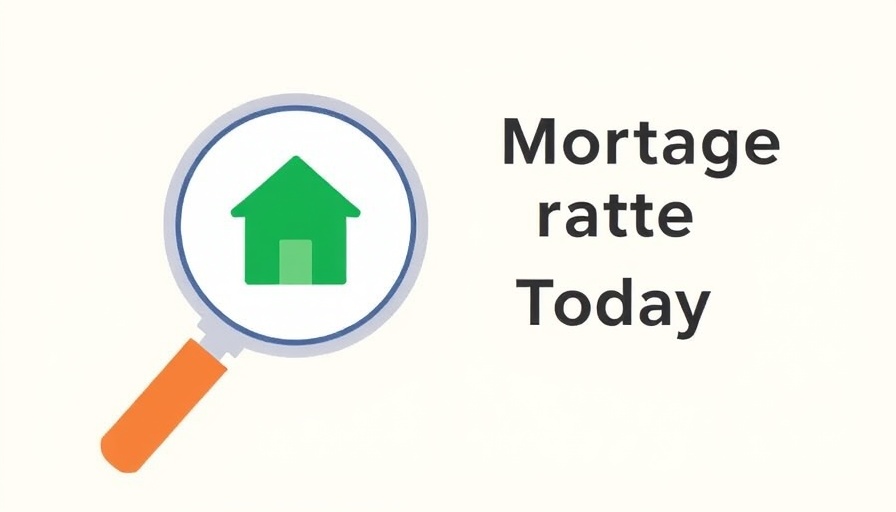
The Impact of Weak Job Growth on Mortgage Rates
In an unexpected turn of events, mortgage rates have dropped significantly, reaching their lowest levels since March. As of August 7, 2025, a 30-year fixed-rate mortgage averages 6.7%, down from 6.87% a week prior—marking a notable decline that may impact many potential homebuyers and small business owners alike.
This plummet in rates has been linked directly to disappointing job growth this summer. The U.S. labor market, previously viewed as resilient, has revealed signs of weakness, shaking investor confidence and influencing the decisions made by the Federal Reserve regarding interest rates and monetary policy.
Understanding the Current Economic Landscape
The recent labor report indicated a slower pace of job additions, which could have ripple effects throughout the economy. A weak jobs report typically signals that consumer spending could decelerate, an essential driver of economic growth. This underwhelming labor market has prompted analysts to speculate that the Fed might reconsider its current rate hike plans, contributing to the lowered mortgage interest rates.
According to the U.S. Bureau of Labor Statistics, the employment outlook is a crucial indicator for economic performance. Less job growth often leads to reduced consumer confidence, thereby impacting purchases—including homes, which often represent the largest financial commitment made by individuals or families.
Why Falling Mortgage Rates Matter for Small Business Owners
For small business owners and managers, understanding the implications of these lower mortgage rates is vital. Access to cheaper borrowing costs can facilitate business expansions, real estate purchases, or refinancing existing debt. Rates that dip below 7% can serve as an excellent opportunity for small business owners looking to capitalize on favorable financial conditions to fuel growth.
Additionally, lower mortgage rates can indirectly boost sectors linked to the housing market and construction, potentially leading to increased business for those related to hardware, home renovations, and even furnishing companies. Small business owners should keep a watchful eye on these fluctuations as they could present unexpected opportunities.
Future Predictions: What Lies Ahead?
As we look forward, several factors could influence both mortgage rates and the job market. A continued trend of underwhelming employment numbers may prompt the Fed to adopt a more cautious approach concerning interest rates. Should this pattern hold, the mortgage rates could remain appealing for a longer timeframe, potentially enticing more buyers into the market.
However, it is crucial to understand the cyclical nature of economic indicators. If job growth rebounds and inflation becomes a concern, we may see an uptick in mortgage rates as the Fed shifts gears to combat rising prices.
Tools and Resources for Small Business Owners
For those navigating this shifting landscape, staying informed is the first step. Utilizing digital tools such as financial advice blogs, mortgage comparison sites, and economic indicator apps can provide valuable insights. Furthermore, local chambers of commerce and economic development groups often offer resources to help business owners understand the broader economic implications of such developments.
Engaging with a financial advisor who specializes in real estate can also provide tailored strategies that align with your business objectives—especially if you’re considering new acquisitions or refinancing existing properties.
Final Thoughts: What Can You Do?
The recent declines in mortgage rates, driven by lower job growth, present a moment of opportunity for small business owners. Capitalizing on lower borrowing costs can provide a financial cushion in uncertain economic times. Therefore, it is essential to evaluate your current loan situation and explore options that may become available in this favorable environment. Consider the potential advantages of refinancing existing loans or taking advantage of low rates for future investments.
As you navigate these developments, remember the importance of informed decision-making. By staying proactive and adapting to changes in the economic climate, small business owners can place themselves in a strong position to thrive.
 Add Row
Add Row  Add
Add 




Write A Comment